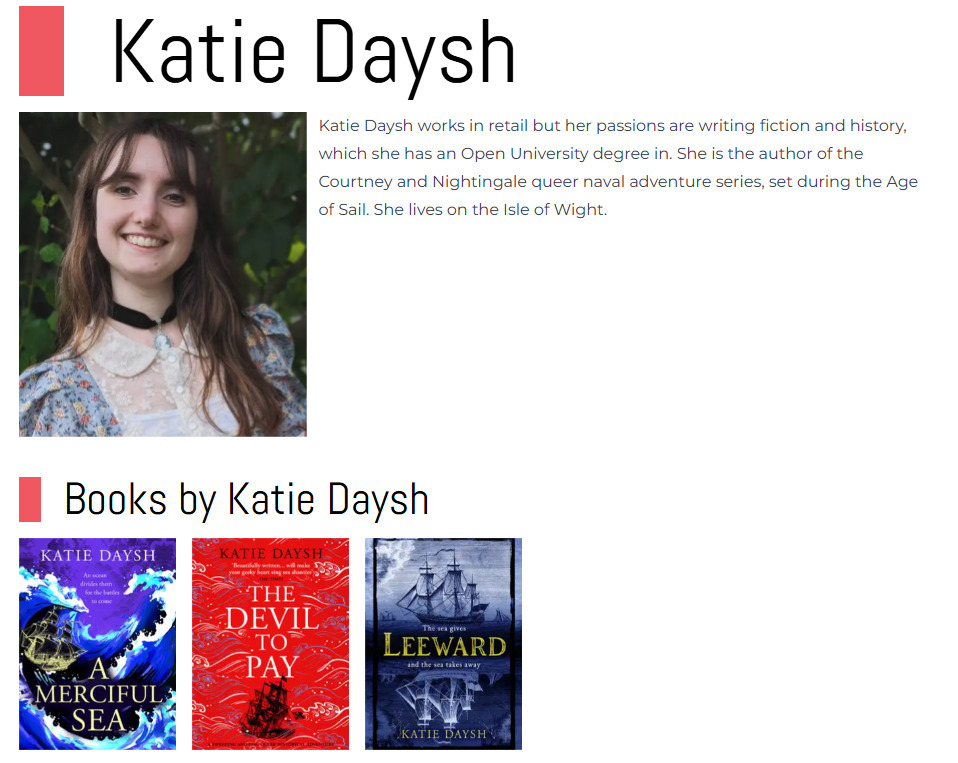Recently, I organised an event called ‘Pages, Plots, and Publishing’, bringing together a few of my fellow Isle of Wight writers to chat about our experiences in the publishing world. Although there are long-standing and ‘traditional’ ways of getting into this industry, it is very rare that a writer follows the same journey, and this panel really showed that. We were a mix of traditionally published authors, self-published, indie and hybrid, some of us agented, some of us not – and each of us had a different insight.
That panel inspired this blog post. I thought I would write a little bit about how I came to be a traditionally published agented author, and how I have navigated the bewildering, scary but rewarding world of publishing.
I am always willing to chat about these things so please post any questions below or drop me an email (on my Contact page) or message me on social media!
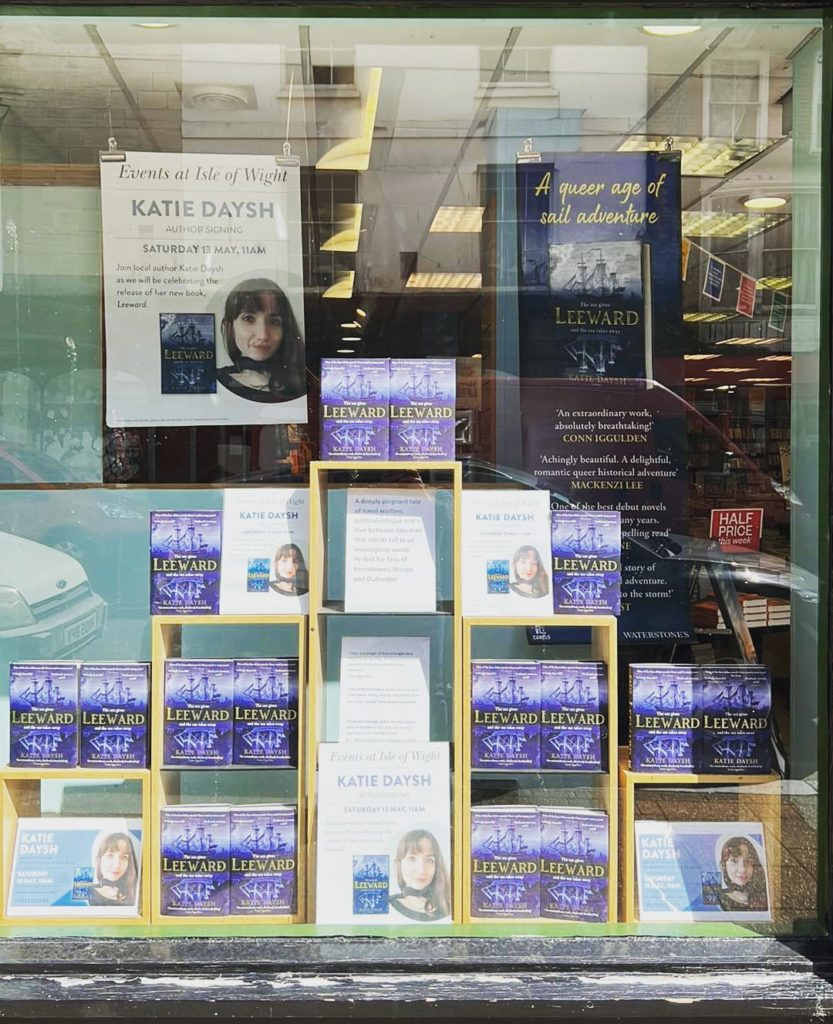
An untraditional way into tradition
That sub-heading really sums up my whole experience in the world of professional writing. I am a woman from the LGBTQ+ community writing in the Age of Sail genre which has been very straight- older-male-dominated for a long time, both in terms of the authorship and the content of the books. But that’s a different story, and one which I may chat about in another blog!
My pathway to becoming a published writer, though, was also a very untraditional one. Now, the accepted route into the traditional publishing industry is to query literary agents, for instance through QueryTracker, an online resource which lists available agents and allows authors to (as the name implies) keep track of the queries they have sent out. This usually involves details about you and your work, including a brief description of your novel, its genre, wordcount, ‘hook’, comps (comparisons to similar published books) and a short excerpt. If you are successful in grabbing the agent’s attention, they may request more to read of that work, sometimes the entirety of it.
This can be a long, difficult and demoralising process. Thousands upon thousands of books are written every day and literary agencies receive countless queries. There are many resources to check out if you are in the process of querying and there are even some places, such as Jericho Writers, where you can receive one-to-one support on querying packages.
If you are lucky enough to bag yourself a literary agent, then they will use their contacts amongst publishers, editors and other professionals in the publishing world to submit your manuscript to. This, again, is a whole other story (no pun intended) but long story short (again, no pun intended) these are the very basics of getting your book published: you query agents, agents submit to publishers, publishers (if you are successful) take on the book.
My journey takes a slightly different path. I’m never one to do things the normal way, as much as I try to.
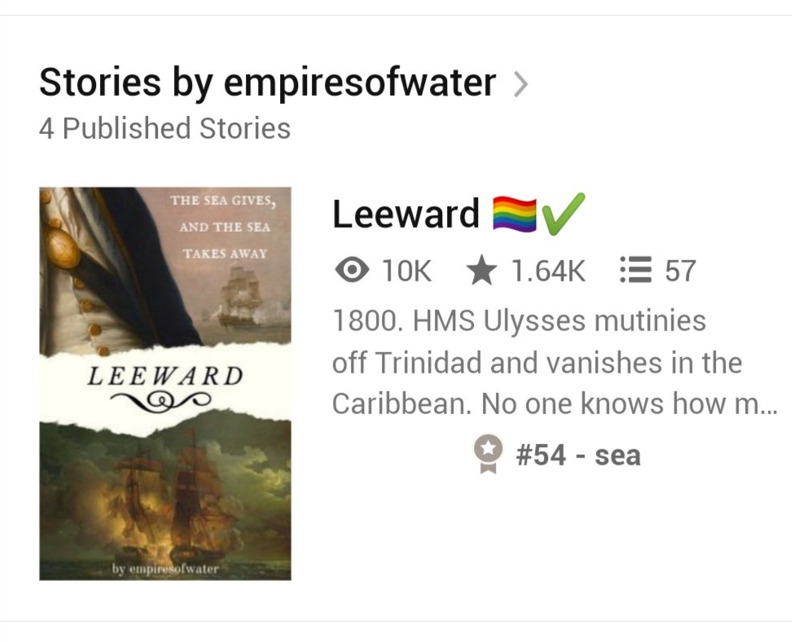
The world of online writing
For many years, I have posted stories, free to read, online. There are a huge number of online story-sharing platforms to do this. In the olden days, it was fictionpress, FanFiction.net, and Livejournal. Now, there are places like Archive of Our Own (AO3), Inkitt, and Wattpad (and a great many dodgy scammy sites, so be careful! My golden rule is always check out Writer Beware where they share good advice and behind-the-scenes details about sites and contracts and publishers who are…not great).
The place where I felt most at home was Wattpad. This site gets a bit of a bad rap and sometimes, for good reason. Like any place which hosts millions of stories, there are some terrible ones. Its website does not give a very good sense of the hidden gems that exist in the niches of the site, and by and large, its reputation is for young teens finding their feet with writing (nothing wrong with this, of course – I was once a young teen finding my feet with writing – but if you mention Wattpad to people, they usually associate it with cringey ‘I was sold to One Direction’ fanfiction).
However, I have met amazing writers on there and they form the core of the writing community I still interact with online. What is great about Wattpad is its ‘inline commenting’ function which allows readers to post their thoughts on individual paragraphs and sentences. I believe I really improved as a writer through this kind of feedback online and Wattpad is a fab place to chuck your first drafts and receive encouragement and motivation.
Originally, Leeward was all free to read on there. When it was complete, I promoted it a bit on social media and one day, completely out of the blue, I received a message from the commissioning editor of the publisher Canelo who specialise in commercial genre fiction. I still remember receiving this message and it’s a reason I cannot quite extricate myself from X/Twitter yet, as it remains in my inbox as one of the nicest things anyone has ever said about my writing.
Of course, to begin with, I was very cautious! Literary agents and publishers do not approach you. You approach them. That is the advice you hear again and again. If people do come to you, their message usually goes down the route of ‘Hey, I loved your work! [AI generated slop which doesn’t really say anything about your work but uses lots of fancy words] I would love to help you publish your work. Pls give me £10,000’.
Very very luckily, that was not what this message was. It was legitimate. It was supportive. And it came from a publisher who I definitely would have been interested in later approaching with my work.
Thrown in at the deep end
From then on, it was an absolute whirlwind. I was not at a place in my writing life where I thought I would be published. At the time, I was deep in proofreading and editing courses as I considered that to perhaps be a route into the industry. Leeward was not even a book I intended to query (lots of reasons for that, which I may get into in another post about the Age of Sail as a genre). But there I was, with a publishing contract and two other books to write in the series.
And to be honest, I loved it. I fell headfirst into the publishing industry but I have never looked back. I have really found my home in this world and in this genre. I have met some amazing people (writers and readers and others in the industry) and have to pinch myself at the events I get to do and the places I see my writing.
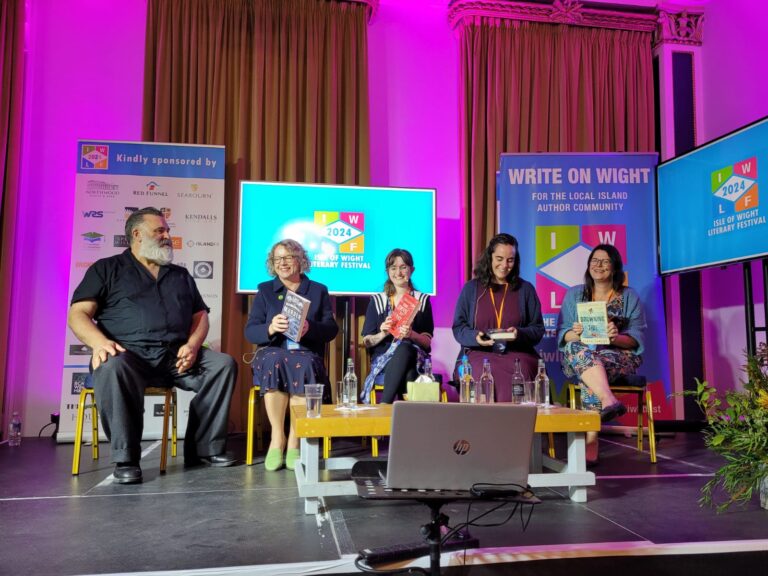
I would love to chat about the pros and cons I have found in my experience, but I’m aware this post is getting longer and longer… So for now, I’ll quickly get onto how I found my agent! Or rather how my agent found me as again, I did things backwards.
My literary agent is the fabulous Francesca Riccardi from Kate Nash Literary Agency. She originally worked for Canelo with their marketing and so helped in the early stages of Leeward. When she left to become a literary agent, we made contact and she was kind enough to offer me representation.
Again, this is an untraditional way to go about things so I apologise that it’s probably not great advice for writers who are querying, but I can give the advice that I definitely recommend pursuing the path of getting a literary agent. Canelo were supportive and helpful and yes, some publishers do accept unagented submissions but this is becoming rarer. Agents are brilliant for navigating the publishing world and utilising their contacts, as well as providing encouragement, advice, and helping to shape your work. If you want to go the traditional route, they are the best way to go about it.
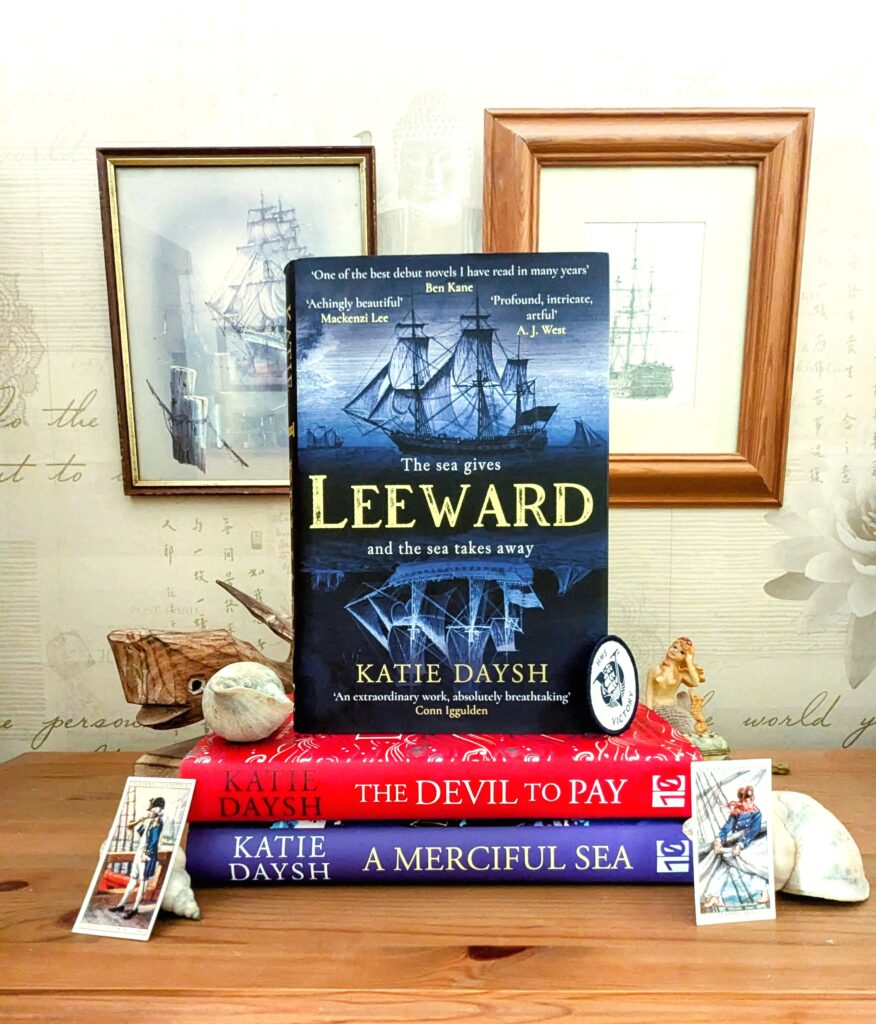
From online writer to traditionally published author
Now, do I recommend the route I took into the industry? Yes, and no. Yes, because writing online really does help with building community and getting feedback from real people and real readers. No, because jumping from an online writer straight into the traditional publishing industry very, very rarely happens. It can happen, but it’s not something you can rely on.
I always feel quite strange telling my story because a) it sounds like I fell for an illegitimate way in and b) it sounds like I did not work to get where I am now. I do sometimes feel bad for not going through the gruelling querying process, but the work does not stop once you get an agent and a publisher. I shall talk more about the ups and downs in another post!
My final piece of advice is, no matter which route you are pursuing or how you got to be where you are, always be aware of the other pathways and what other writers are doing. Making connections with others is so valuable! There is no ‘better’ journey into writing. Every writer is on their own road; sometimes they intersect but they are never exactly the same.
